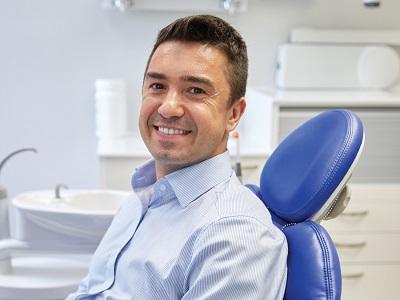Bruxism and TMJ Disease
Chronic teeth grinding, called bruxism, can have wide-ranging symptoms and cause oral health issues that have lifelong repercussions. While most people will experience short-term instances of teeth grinding, patients who suffer from regular or nearly nightly teeth grinding instances may find they develop oral health issues such as:
 Worn down, chipped, or broken teeth
Worn down, chipped, or broken teeth- Jaw pain and dysfunction
- Ringing in the ears
- Headaches, neck pain, or shoulder pain
- Facial soreness and fatigue
- Migraines
- Tinnitus (ringing in the ears)
- Sensitive teeth
- Gum recession
The cause of bruxism varies from person-to-person and can range from unmanaged stress, certain medications, incorrect bite, and even tobacco or caffeine use.
When left untreated, the jaw muscles can become inflamed, disrupting normal jaw function that keeps the mouth from opening and closing properly. Inflamed muscles can cause fatigue, headaches, and facial soreness that disrupts normal daily life.
Jaw Joint Dysfunction
Clicking, popping, or locking jaw joints are indicative of TMJ, or temporomandibular joint disease. TMJ disorders mean that the jaw is not operating optimally. Clicking, popping, and painful jaws can mean that eating, yawning, and speaking can be a challenge.
Facial soreness and chronic pain can be difficult to live with. We offer solutions for teeth grinding and jaw pain in our Central Hong Kong dental office.
Treatment for Bruxism and TMJ Disease
In many cases, patients who complain of teeth grinding, headaches, or jaw pain will find relief from an occlusal (bite) splint, also known as a nightguard.
Bite splints serve several important purposes.
- Bite barrier – A splint places a barrier between the upper and lower teeth, preventing from teeth grinding against each other unconsciously during sleep. This can keep teeth from chipping and fracturing due to the excessive force of very strong jaw muscles.
- Relax the muscles – Custom nightguards can relax the muscles in the jaw and reduce inflammation associated with TMJ disorders.
- Seat the joints – When muscles relax, the jaw joints will often be seated comfortably because of reduced inflammation. This can minimize clicking, popping, and locking joints as well as tension headaches and migraines.
 Treating Advanced TMJ Disease
Treating Advanced TMJ Disease
On occasion, we refer patients to our oral surgeon to address jaw dysfunction. For patients with severely worn teeth, restorative dentistry, such as crowns, can restore the size and shape of teeth to improve the bite.
We work closely with each patient in our Central Hong Kong dental office to identify and relieve the causes of teeth grinding and jaw pain. Our dentists will make a personalized recommendation based on each individual’s needs.
Contact Our Hong Kong Central Dental Office
If you have jaw pain or sensitive teeth, we welcome you to get in touch with our dental office to book a consultation to see if dental treatments such as oral appliances can benefit you.






